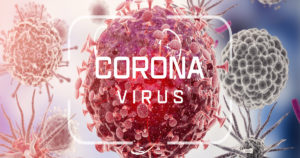Kids and COVID-19
April 16, 2020 As thousands of schools remain closed throughout the Tristate area, millions of families are scrambling to adjust to everyday life now that their kids and teens are at home with no concrete deadline in sight. Luckily, the Centers for Disease Control and Prevention (CDC) say there is no evidence indicating that children are at higher risk for COVID-19, the highly contagious respiratory illness sweeping the nation, than adults are. Still, it is essential that parents and caregivers take this time to teach children how to maintain good hygiene and to practice social distancing in order to stay safe and limit transmission, so we have compiled some helpful tips from the CDC below.
As thousands of schools remain closed throughout the Tristate area, millions of families are scrambling to adjust to everyday life now that their kids and teens are at home with no concrete deadline in sight. Luckily, the Centers for Disease Control and Prevention (CDC) say there is no evidence indicating that children are at higher risk for COVID-19, the highly contagious respiratory illness sweeping the nation, than adults are. Still, it is essential that parents and caregivers take this time to teach children how to maintain good hygiene and to practice social distancing in order to stay safe and limit transmission, so we have compiled some helpful tips from the CDC below.
Coronavirus can spread from person-to-person. The most common scenario for transmission is through respiratory droplets, or the liquid that infected people produce through their coughs ands sneezes. Symptoms can take 2-14 days to appear and recent studies show that approximately 10% of new cases are attributable to asymptomatic spread – so taking precautions to slow the spread of the virus is critical.
Safety And Prevention Tips For Kids
Although kids and teens typically meet up in groups inside and outside of school to learn and socialize, doing so at the moment creates serious public health risks and dangers. The CDC says that while most children diagnosed with the coronavirus experience mild symptoms, in rare cases the complications can be fatal. To limit coronavirus-related risks, the CDC recommends taking the following steps to keep kids, teens, and others healthy:
- Regularly wash hands with soap and water. If soap and water are not available, use hand sanitizer that is at least 60% alcohol. Adults should be role models for children and wash their hands often in order to show how important it is to practice good hygiene,
- Avoid people who are sick, like those who are sneezing and coughing,
- Launder items (including washable toys) as often as necessary. When washing items, use the warmest setting possible and be sure to dry items thoroughly. Note that it is safe to wash laundry from a sick person with other items from people who are not ill,
- Practice strict social distancing, which means limiting contact with people as much as possible. People who are not in the same household should stay at least 6 feet away from one another and should only be around each other if it is essential. Additionally, consider postponing trips and visits to see older family member such as grandparents or anyone 65-years-old and above. Older individuals, immunocompromised people and those with chronic health conditions like asthma or diabetes are high risk for COVID-19, so it is crucial to limit all unnecessary contact. Consider connecting by writing letters or sending emails back and forth in the meantime,
- Revise any non-essential travel plans, including spring break trips. Remember that even if children do not have symptoms, they can still pass the virus on to others unknowingly, and:
- Children over the age of 2-years-old should wear a cloth face covering their mouth and nose when they are in a community setting, like public places where social distance is difficult to maintain. Remember, cloth coverings do not protect the wearer from getting sick. Instead, they help prevent the virus from spreading to others. Children who have asthma or who are unable to remove a cloth covering on their own should not wear one.
The CDC is also urging parents and caregivers to watch out for signs of emotional and psychological stress in children. Just like adults who are struggling to adjust to all the changes brought about during the coronavirus pandemic, kids and teens are too. Concerning signs of stress to watch out for include unhealthy eating or sleeping habits, excessive worry or sadness, and difficulty with concentration and attention. One good way to prevent unhealthy levels of stress is to talk to kids and teens about what is going on in a way they can understand.
If your child is exhibiting symptoms frequently associated with the coronavirus, like cough, fever, or shortness of breath, call your healthcare provider. It is also important to keep your child at home and out of contact with others as much as possible. Most people can manage symptoms on their own but if someone is experiencing severe complications like difficulty breathing, seek emergency medical care right away.
Philadelphia Personal Injury Lawyers at Galfand Berger, LLP Representing Injured Individuals Since 1947
If you have a legal question, please contact our Philadelphia personal injury attorneys. Galfand Berger has offices located in Philadelphia, Bethlehem, Lancaster, and Reading, we serve clients throughout Pennsylvania and New Jersey. To schedule a consultation, call us at 800-222-8792 or complete our online contact form.
 Google Screened
Google Screened
